
Trento Training School: The rhetorical roots of argumentation. A legal experience
30 August – 4 September 2021 | Faculty of Law, University of Trento, Italy
About | Trainers | Applications and Funding | Venue and Practical Information | Contacts | COVID travel information
About
The APPLY Action identifies some gaps, regarding policy decision-making process, between citizens’ and policymakers’ argumentation, normative theory and practice of argumentation, for both institutions and subjects. In the light of this aim, the Trento Training School (TTS) will be focused on legal argumentation, by investigating the rhetorical core of legal discourses with relation to:
– critical studies of concepts and methods to measure the quality of arguments in public policy and legal context, focusing on the Aristotelian concept of rhetoric as a model (Piazza). One of the goals of this theoretical part will be to disprove the preconception about rhetoric as “persuasion at any cost” and to value the idea of rhetoric as the analysis of how the language can be used effectively when combined with cognition, emotions and responsibility. Likewise, the idea of “reasonableness” will be interpreted in the light of the inner rationality of rhetorical discourses (Rocci). At the very end of this theoretical path, it will be possible to explain why and how this kind of rhetorical model is fundamental for law, by acknowledging the legacy of ancient Greece and Rome on this matter (Puppo).
– empirical research involving EU regulations: it focuses on the argumentative structure of European documents (Andone) and it explores the methods of computational argumentation (especially, the role of argument diagramming in logic and artificial intelligence) as applied to law (Reed).
– four training sessions to help participants to develop theoretical and practical tools to manage legal controversies successfully. The ultimate goal of the final moot court is to involve participants in methods and practices, and to test their rhetorical skills in a well-informed argumentative discussion. The training and the final moot court aim to make participants understand the fundamental role of persuasion and the close connection between democratic policy and legal arguing.
The training school is intended for both academics and practitioners at any stage of their career (but with priority given to Early Career Investigators) who are working on issues of argumentation and rhetoric in public and legal contexts.
In terms of research coordination, in order to promote the dissemination of content and methods of the TTS, it is foreseen, as of now, the publication of TTS trainers’ contributions and, after selection, of the participants’ ones. In terms of capacity building, the interdisciplinary of the teaching methods and the diversity of the participants’ backgrounds will enhance of academic and professional experiences and encourage exchanges between different public contexts.
The training school will take place over 6 days, combining theoretical lessons, training in legal rhetoric in court, trial simulation (moot court), discussion of shared readings, final brainstorming and cooperative learning.
Program available HERE
Trainers’ abstracts available HERE
Trainers
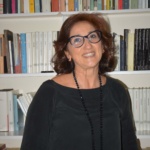
Francesca Piazza:
Full Professor of Philosophy and Theory of Language in the Department of Humanistic Sciences at the University of Palermo (Italy). She is also the President of the Society of Philosophy of Language and the Director of the Department of Humanistic Sciences at the University of Palermo. She has written several publications and books dealing with the importance of rhetoric in public policy argumentation.
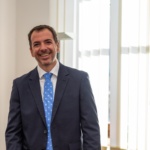 Federico Puppo: Full Professor of Philosophy of Law in the Faculty of Law at the University of Trento (Italy) and member of the CERMEG-Research Center on Legal Methodology (Italy). His researches deal with philosophy of law and legal methodology (with a special focus on the vagueness of language and pluralism in law), and legal logic, argumentation and rhetoric (with attention to informal logic and truth). He is the promoter of the TTS.
Federico Puppo: Full Professor of Philosophy of Law in the Faculty of Law at the University of Trento (Italy) and member of the CERMEG-Research Center on Legal Methodology (Italy). His researches deal with philosophy of law and legal methodology (with a special focus on the vagueness of language and pluralism in law), and legal logic, argumentation and rhetoric (with attention to informal logic and truth). He is the promoter of the TTS.
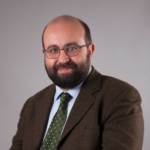 Andrea Rocci: Full Professor and Director of the Institute of Argumentation, Linguistics and Semiotics at the Università della Svizzera Italiana (Lugano). He is also Director of the Master programme in European Studies in Investor Relations and Financial Communication (ESIR) offered jointly with Università Cattolica (Milan). His main areas of research are the juncture between argumentation and the semantics and pragmatic aspects of language (with a special focus on modality) and the analysis of argumentative interactions in context (with a special attention to the financial domain).
Andrea Rocci: Full Professor and Director of the Institute of Argumentation, Linguistics and Semiotics at the Università della Svizzera Italiana (Lugano). He is also Director of the Master programme in European Studies in Investor Relations and Financial Communication (ESIR) offered jointly with Università Cattolica (Milan). His main areas of research are the juncture between argumentation and the semantics and pragmatic aspects of language (with a special focus on modality) and the analysis of argumentative interactions in context (with a special attention to the financial domain).
Corina Andone: 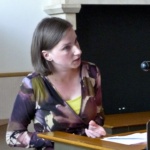
Assistant Professor of Language and Communication (University of Amsterdam, the Netherlands) and senior researcher and coordinator of the Argumentation and Rhetoric Group (ARGA) at the Amsterdam Centre for Language and Communication (ACLC), as well as affiliated with the Amsterdam Centre for European Studies (ACES). Her research focuses on political and legal argumentation, in particular in the European Union.
 Chris Reed:
Chris Reed:
Professor of Computer Science and Philosophy at the University of Dundee in Scotland, where he heads the Centre for Argument Technology. Chris has been working at the overlap between argumentation theory and artificial intelligence for over twenty years, has won £6m in funding and has over 200 publications in the area. He collaborates with a wide range of partners such as IBM and the BBC, and is also active in public engagement and commercialisation of research, having served as executive director (CTO, CSO and CEO) of three start-up companies, and appearing in TV, radio and print media with a combined audience in excess of 29 million people.
Moot Court Trainers
Laura Baccaglini:
Associate Professor of Civil Procedural law and Insolvency Law in the Faculty of Law at the University of Trento (Italy); she is member of the Italian Association of Civil Procedure Law scholars (IASPC) and member of the Italian Society of Insolvency Studies (SISCO). Since 2008, she has had classes of Moot Court.
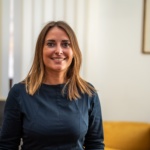
Serena Tomasi:
PhD, member of CERMEG, professor of Philosophy of Law in the Faculty of Law at the University of Trento (Bachelor Degree on Comparative, European and International Legal Studies – CEILS). Her main research focuses on argumentation theory and legal rhetoric. She supervised argumentative teaching projects in secondary schools and barrister associations.
Kevin Silvestri: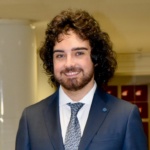
PhD student in Civil Procedural Law, at the University of Trento. He cooperated with Professor Laura Baccaglini in the past two courses of Moot Court (2020 and 2021) at the Faculty of Law, University of Trento
Trento Training School Report
From the August 30 th until September 4 th APPLY project organized Trento Training School: The rhetorical roots of argumentation: A legal experience.
Training School was organized by Federico Puppo and his team at the Faculty of Law at the University of Trento in Italy.
During the five days of a Training School, 18 participants from different European countries and different professional backgrounds attended lectures, delivered presentations and participated in fruitful discussions and exercises. According to participants the strongest aspect of this Training School was clear thematic coherence among the proposed lectures, with main reference to Piazza’s, Rocci’s and Puppo’s one, devoted to proposing a re-founding of rhetoric from an Aristotelian point of view, while Reed’s and Andone’s lectures have given a different, maybe more practical, but very useful, insight into argumentation.
Trainees also participated in the Moot Court Trainings which enabled them to apply theoretical knowledge on argumentation and rhetoric in a simulation of court trial and judicial discourse. Simulations of real court trials motivated them to engage in preparing for the competition. On the last day of the Training School, participants had an opportunity to present their own research which integrated new knowledge and insights obtained during the Training School.
In the end, it can be concluded that Trento Training School was a great success which gave participants an opportunity to learn from the trainers of high expertise, to expand their knowledge on argumentation and rhetoric and to participate in exercises and productive discussions.
Considering the pandemic times, the Training school was also a great opportunity for scholars to meet, socialize and engage in face to face encounters.
See the photos of the event HERE
Applications and Funding
Deadline for applications: 20 June 20121. Apply HERE
Notification of acceptance: 04/07/2021
– Researchers/scholars qualifying as pre-doc (M.A. in hand) or early career (max 8 years after PhD, by the workshops’ end);
– Legal practitioners/trainees;
– “Policy persons” working for/with public policy-related organizations, governments, consultancies, NGOs, think-tanks, etc.;
– Educator at public or private institutions;
– MA students.
It is expected of participants to arrange their own travel and accommodation. Please see below more details about the Venue and Practical Information
Funding
To qualify for funding, you must be affiliated with an institution or company in one of the following countries:
Albania, Austria, Belgium, Bosnia and Herzegovina, Bulgaria, Croatia, Cyprus, Czech Republic, Denmark, Estonia, Finland, France, Germany, Greece, Hungary, Iceland, Ireland, Italy, Latvia, Lithuania, Luxembourg, Malta, Moldova, Montenegro, The Netherlands, Norway, Poland, Portugal, Romania, Serbia, Slovakia, Slovenia, Spain, Sweden, Switzerland, Turkey, United Kingdom and the former Yugoslav Republic of Macedonia, plus Israel (cooperating member). See details on the COST website
In line with the eligibility rules specified in Vademecum, the Action will be able to cover long-distance travel expenses and daily allowance rate (60 EUR, covering accommodation, meals, and local travel expenses) to participants, in order to support as many trainees as possible.
Venue and practical information
Venue
The TTS will take place in the University of Trento, Faculty of Law; in case of restrictions due to the pandemic emergency the TTS will be held online.
Travel
From Verona (Catullo airport):
– Train (recommended): Trenitalia https://www.trenitalia.com/en.html from Verona Porta Nuova to Trento (it is about 1:15h travelling). For the connection airport – train station you can find useful information here: https://www.aeroportoverona.it/en/transport/aerobus.html.
– Bus: Flixbus https://global.flixbus.com/
From Venice (Marco Polo airport):
– Train: Trenitalia from Venezia Mestre to Trento (you have one change in Verona Porta Nuova).
– For the connection Venice airport – Mestre you can take the bus number 15 or 45.
From Milan Bergamo (Orio al Serio airport):
– Flixbus https://global.flixbus.com/ direct connection (it is about 3h travelling)
From Milan Malpensa:
– Flixbus: https://global.flixbus.com/ direct connection (it is about 3:30h travelling)
– Train: from Milano Centrale to Trento (you have one change in Verona Porta Nuova). For the connection Milan Malpensa airport – Milano Centrale station you have a direct bus (it is about 1h travelling) https://www.malpensaexpress.it/en/.
For trains: Trenitalia is usually the cheapest solution but you can find good prices also in https://www.italotreno.it/en (in particular for the connection Milano Centrale – Verona Porta Nuova: then you need to change and take the Trenitalia train to join Trento). Italotreno is also faster and more comfortable than Trenitalia.
Please note that due to the pandemic public transports may be limited or changed.
If you need more information please do not hesitate to contact us.
Accommodation
Within walking distance from the location of the conference there are the following hotels:
Accademia****, https://www.accademiahotel.it, single room around 71€/night
Albermonaco***, single room around 63€/night
Aquila D’Oro***, http://www.aquiladoro.it, single room around 80€/night
America***, https://www.hotelamerica.it, single room around 68€/night
Buonconsiglio, https://www.hotelbuonconsiglio.com, single room around 78€/night
GrandHotel Trento****s, https://www.grandhoteltrento.com, single room around 93€/night
Venezia**, https://www.hotelveneziatrento.it, single room around 45€/night
Bed & Breakfast Eden, http://www.bbeden.it, single room around 45€/night
Hostel Giovane Europa, http://www.gayaproject.it, room around 26€/night
Bed & Breakfast Nettuno, http://www.bbnettuno.it/wp/, single room around 50/65€/night
Attractions
If you are coming to Trento for the first time, the first thing we suggest you do is to reach Piazza Duomo. Here, you can stop under the Fountain of Neptune for a photo of the impressive Duomo [Cathedral] of Trento, with the mountains in the background. There you can walk around the fountain to admire the beautiful Renaissance frescoes on the Cazuffi Rella homes, focused on the themes of Justice and Luck.
Another stop in Trento must necessarily be at Castello del Buonconsiglio, an elegant and robustly fortified castle, a ten-minute walk from the piazza. For centuries, the castle was home to the prince bishops of Trento, and today it hosts numerous art and archaeology collections, as well as contemporary exhibitions.
A voyage between art and history, as well as science and architecture. In fact, you must visit Le Albere district, about twelve minutes on foot from the historical centre. Here, in a green meadow embraced by the mountains, lies the Muse, the famous museum of natural science, designed by starchitect Renzo Piano.
Then, if you want to try a truly unforgettable aperitif, we suggest you take the cable car (just a short distance from Piazza Duomo) and climb up to the Sardagna belvedere, to look over the city from above, and sip your aperitif at sundown.
Other Info
Time-Zone: GMT+2
Electricity and Water: The standard electricity is 230 V and the frequency is 50 Hz using 2-prong Euro plugs. Tap water is safe and drinkable all over Italy.
Wi-fi: free Wi-fi will be available at the venue
Contacts
In case of doubts regarding your application or other information you may need please do get in touch
Federico Puppo, Trento Training School organizer: federico.puppo@unitn.it
Serena Tomasi, Trento Training School organizer: serena.tomasi_1@unitn.it
Gabrijela Kisicek, APPLY Training School Coordinator gkisicek@ffzg.hr
Andreia Zorrinho, APPLY Grant Manager andreia.zorrinho@fcsh.unl.pt
COVID travel information
Plan your travel to Trento beforehand. Have the latest travel information through the following websites:

